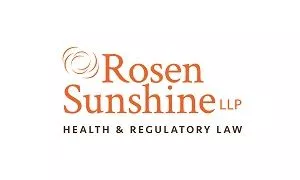- within Food, Drugs, Healthcare and Life Sciences topic(s)
- within Food, Drugs, Healthcare, Life Sciences, Compliance and Insurance topic(s)
- with Senior Company Executives, HR and Finance and Tax Executives
- with readers working within the Environment & Waste Management, Insurance and Healthcare industries
Regulated health professionals may be aware that they are not able to practise while in a conflict of interest or when they may be perceived to be in a conflict of interest. The recent case of RS v. Ontario (Health Professions Appeal and Review Board) is an example of a situation in which a health professional's objectivity was perceived as compromised by bias.
The Facts
The Applicant, RS, was a psychologist who shared his office with his wife, who was a registered psychotherapist. The Applicant conducted a court-ordered custody and access assessment in relation to two ex-spouses and their children, which recommended that the Father have sole custody of the children and that the Mother have access to one child with supervision. Despite the custody and access assessment, the Mother and Father agreed to share joint custody of the children, which was confirmed by a court order in 2009.
In 2014, the Father sought full custody of the children. The Applicant testified at trial, and the Father was granted full custody. The trial judge directed the Father to engage the Applicant and/or "suitable competent professionals" to treat one of the children. Following the trial, the Applicant's psychotherapist wife provided therapy to the child. This therapy included a Facetime session with the child and the Mother in 2018. Two days after the Facetime session, the psychotherapist informed the Mother that she would not be holding further therapy sessions.
The Mother complained to the College of Psychologists of Ontario 1, alleging that the Applicant was biased in favour of the Father and that the services of both the Applicant and the Applicant's wife were being dictated by the Father rather than being in the best interests of the child.
Conflicts of Interest and Bias
The Professional Misconduct Regulation2 under the Psychology and Applied Behaviour Analysis Act, 20213 sets out the various acts that constitute professional misconduct. One of these acts is practising the profession while the member is in a conflict of interest. In addition, the College of Psychologists and Behaviour Analysts of Ontario's Standards of Professional Conduct state at Standard 12.1 as follows:
Registrants must not undertake or continue to provide services where objectivity, competence or effectiveness is, or may reasonably be perceived as, compromised by bias or conflict of interest. [Emphasis added.]
The Decision
The Inquiries, Complaints, and Reports Committee ("ICRC") of the College of Psychologists of Ontario found that the Applicant demonstrated an appearance of bias in that the Applicant's involvement in legal proceedings that involved the Mother, Father, and child could have impacted both the Applicant's objectivity and his wife's objectivity in subsequent therapy. Further, the ICRC found that although the Applicant's wife was the service provider following the trial, the evidence suggested that the Applicant still had some level of involvement in the trial's treatment, as invoices were made in the Applicant's name, the Applicant co-signed the child's psychotherapy progress report, and the Applicant participated in a one-on-one session with the child. The ICRC felt that the appropriate course of action was for the Applicant to have referred the child to a different service provider. If this was not possible due to a lack of providers in the geographic area, the Applicant should have had a discussion with the family about the potential conflict of interest and clearly documented these discussions.
The Applicant was directed to engage a peer coach to discuss how to appropriately manage and document situations in which there is a potential for an appearance of bias or an impression of compromised objectivity. This decision was upheld by both the Health Professions Appeal and Review Board and the Divisional Court.
Takeaways
Regulated health professionals should be cautious of situations where their objectivity or competence could be perceived as compromised due to bias or conflict of interest. In these situations, it is often a best practice to refer the patient or client to another service provider, or where this is not possible, to seek legal advice and thoroughly document all conversations with the patient or client about the potential conflict of interest. If health professionals are unsure if they may be in a conflict of interest, it is best practice to decline to act or provide care.
Footnotes
1 As it was then known. We note that the former College of Psychologists of Ontario is now known as the College of Psychologists and Behaviour Analysts of Ontario.
2 O. Reg. 195/23.
3 S.O. 2021, c. 27, Sched. 4.
The content of this article is intended to provide a general guide to the subject matter. Specialist advice should be sought about your specific circumstances.


